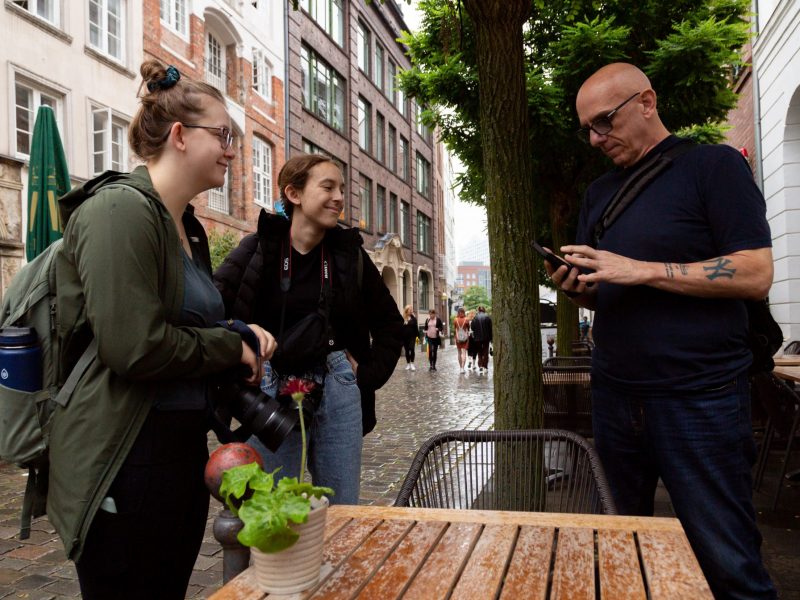Skills learned while earning an arts or letters degree
For new college graduates (and their parents), career readiness is key to ensuring successful entrance into the workforce. According to NACE, the National Association of Colleges and Employers, career readiness is defined as “a foundation from which to demonstrate requisite core competencies that broadly prepare the college educated for success in the workplace and lifelong career management.”
What does that mean?
Employers look not only for specific, job-related skills but also for candidates that possess life skills or transferable skills—that is, the ability to lead, grow professionally, manage time efficiently, and think critically, which are attributes all employers seek, regardless of area of study.
Graduates from the College of Arts & Letters are uniquely positioned to demonstrate these skills and pivot throughout their careers because these skills are intrinsic to core arts and letters courses. There are eight NACE career readiness competencies, each of which is developed throughout the CAL curriculum and can be demonstrated in a variety of ways.
1. Career & Self-Development
Proactively develop yourself and your career through continual personal and professional learning, awareness of your strengths and weaknesses, navigating career opportunities, and networking to build relationships within and outside of the place you work.
Actions that demonstrate self-development
- Show an awareness of own your strengths and areas for further development.
- Display curiosity and seek opportunities to learn.
- Establish, maintain, and/or leverage relationships with people who can help professionally.
A multitude of internships, study abroad, and learning opportunities ensure that students in the College of Arts & Letters are actively encouraged to grow personally and professionally throughout their academic careers.
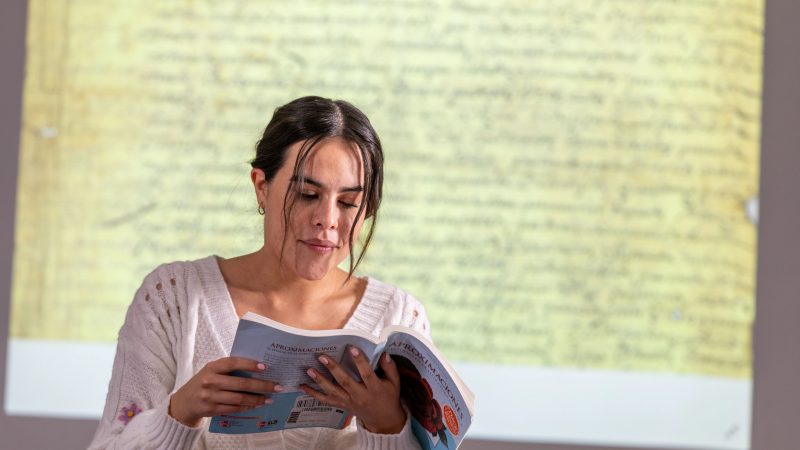
2. Communication
Clearly and effectively exchange information, ideas, facts, and perspectives.
Actions that demonstrate effective communication
- Understand the importance of clear and effective verbal and written communication, as well as body language and subtext.
- Employ active listening, persuasive, and influencing skills.
- Communicate in a clear and organized manner so that others can effectively understand.
Communication is at the core of everything we do in the College of Arts & Letters. English, Theatre, Global Languages & Cultures, Art, and Philosophy are the obvious areas of study that facilitate improved communication skills, but all areas of study reinforce verbal, written, and non-verbal skills.
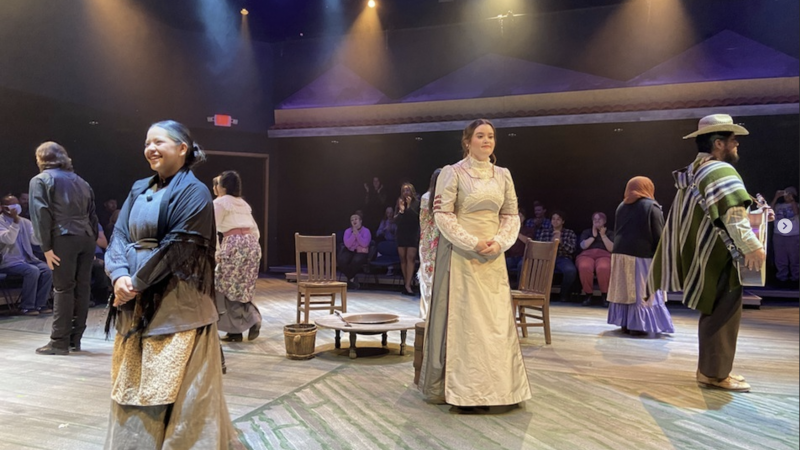
3. Critical Thinking
Identify and respond to needs based upon an understanding of context and logical analysis of relevant information.
Actions that demonstrate critical Thinking skills
- Make decisions and solve problems using sound, inclusive reasoning, and judgment.
- Gather and analyze information from a diverse set of sources and individuals to fully understand a problem.
- Accurately summarize and interpret data with an awareness of personal biases that may impact outcomes.
Like communication, critical thinking is a pillar within the College of Arts & Letters. It informs all discussions, interactions, and projects in many areas of study including Comparative Religion, Philosophy Politics, and Law, History, and more.
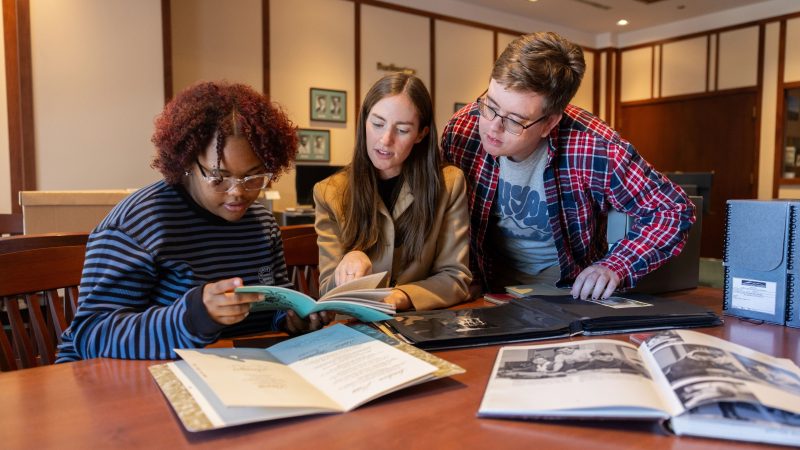
4. Commitment to Equity & Inclusion
Demonstrate the awareness, attitude, knowledge, and skills required to equitably engage and include people from different local and global cultures.
Actions that demonstrate commitment to equity and inclusion
- Seek global, cross-cultural interactions and experiences that enhance your understanding of people from different demographic groups.
- Keep an open mind to diverse ideas and new ways of thinking.
- Demonstrate flexibility by adapting to diverse environments.
Regardless of your major at NAU, you would benefit from taking a few courses in Global Cultures & Languages. Not only can you learn to speak Spanish, French, Italian, Chinese, Japanese, German, or Navajo, but you will be immersed in the study of the world’s diverse peoples and cultures in ways that can lead you to better understand the world and your place in it. A study abroad experience completed as part of your language learning experience can also go a long way toward building your understanding of cultures at home and abroad.

5. Leadership
Recognize and capitalize on personal and team strengths to achieve organizational goals.
Actions that demonstrate effective leadership skills
- Inspire, persuade, and motivate yourself and others to pursue a shared vision.
- Use innovative thinking to go beyond traditional methods.
- Serve as a role model for others by approaching tasks with confidence and a positive attitude.
Opportunities to develop leadership skills abound within the College of Arts & Letters. Music, Theatre, and clubs & organizations all provide outlets to help you grow as a leader.
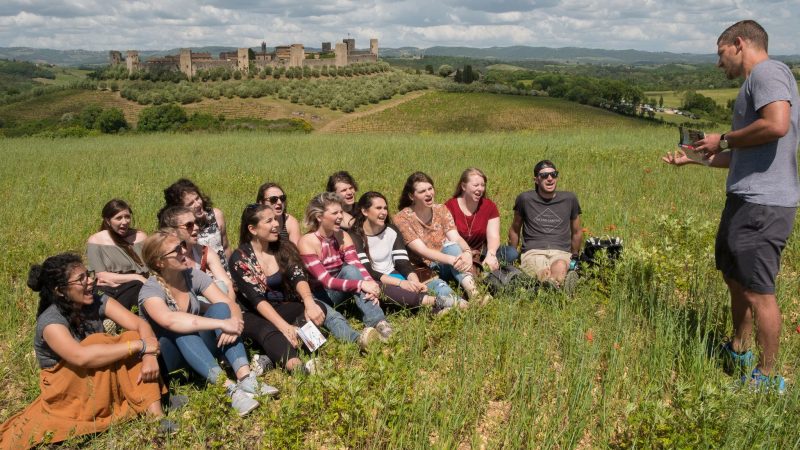
6. Professionalism
Understand and demonstrate effective work habits and act in the interest of the larger community and workplace in diverse work environments.
Actions that demonstrate professionalism
- Be present and prepared.
- Demonstrate dependability (e.g., report consistently for work or meetings).
- Prioritize and complete tasks to accomplish organizational goals.
Professionalism is encouraged and fostered through undergraduate research projects, internship opportunities, study abroad trips, capstone projects, and involvement in the many clubs and organizations among the CAL community.
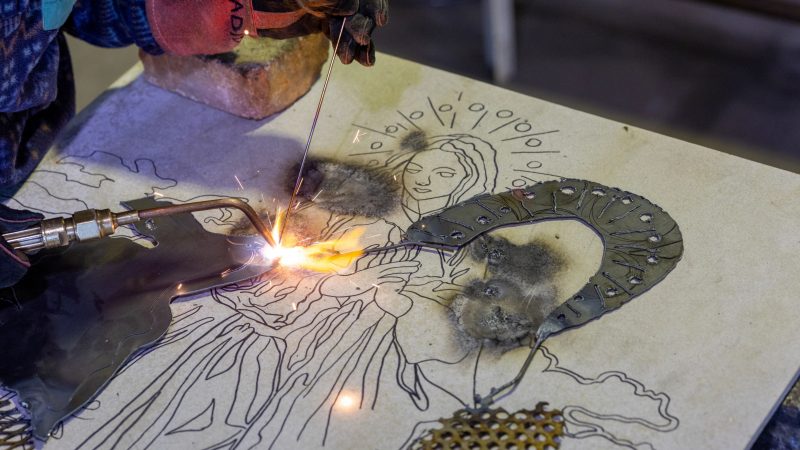
7. Commitment to Teamwork
Build and maintain collaborative relationships to work effectively toward common goals while appreciating diverse viewpoints and shared responsibilities.
Actions that demonstrate a commitment to teamwork
- Listen carefully to others, taking time to understand and ask appropriate questions without interrupting.
- Effectively manage conflict, interacting respectfully with diverse personalities and meeting ambiguity with resilience.
- Hold yourself accountable for individual and team responsibilities and deliverables.
If you participate in Music and Theatre performances, you will demonstrate teamwork most clearly, but every course of study and extracurricular activity will require you to work with others at some point to achieve a common goal.
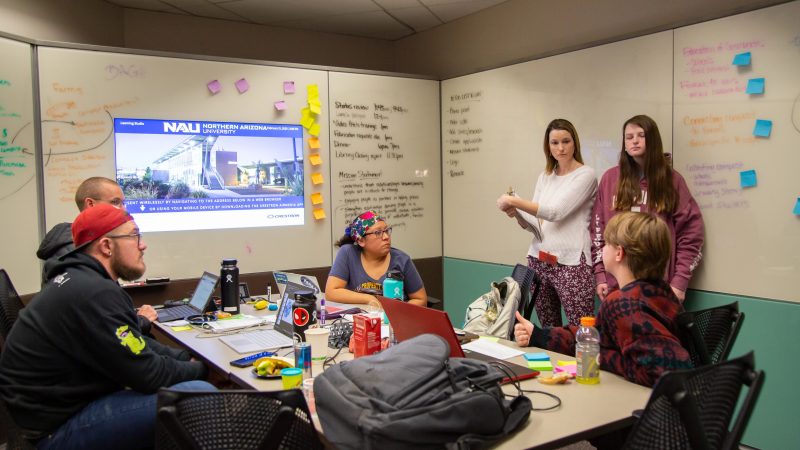
8. Ability to Effectively Deploy Technology
Understand and leverage technologies ethically to enhance efficiencies, complete tasks, and accomplish goals.
Actions that demonstrate effective use of technology
- Identify appropriate technology for completing specific tasks.
- Manage technology to integrate information in order to support relevant, effective, and timely decision-making.
- Quickly and effectively adapt to new or unfamiliar technologies.
The New Media Art emphasis teaches technological proficiency in Art and Design. This program encompasses many fields, encouraging innovation in media as varied as video, 4D design, 3D printed sculpture, stop-motion animation, and robotics!
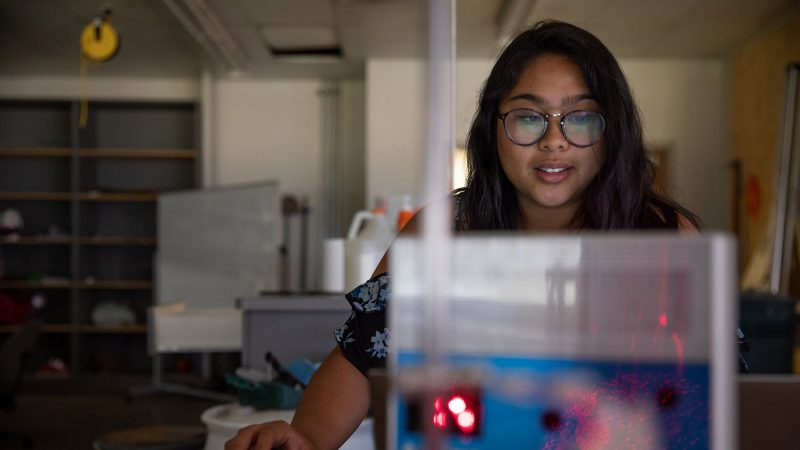
As you can see, it is more than possible to accommodate creative pursuits while learning the skills that make you a highly employable, extremely flexible, and well-rounded potential employee; creative pursuits are integral to the accumulation of skills that will make you the well-rounded and in-demand professional of the future.
Visit the NACE Career Readiness site for more information about your creativity and how it makes you every employer’s unicorn!
- NAU at Flagstaff campus
